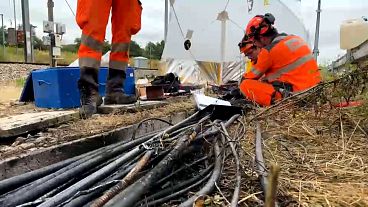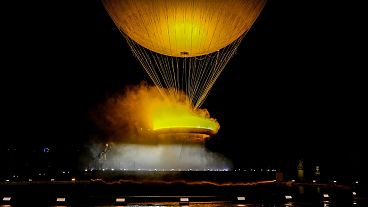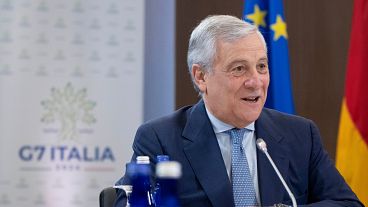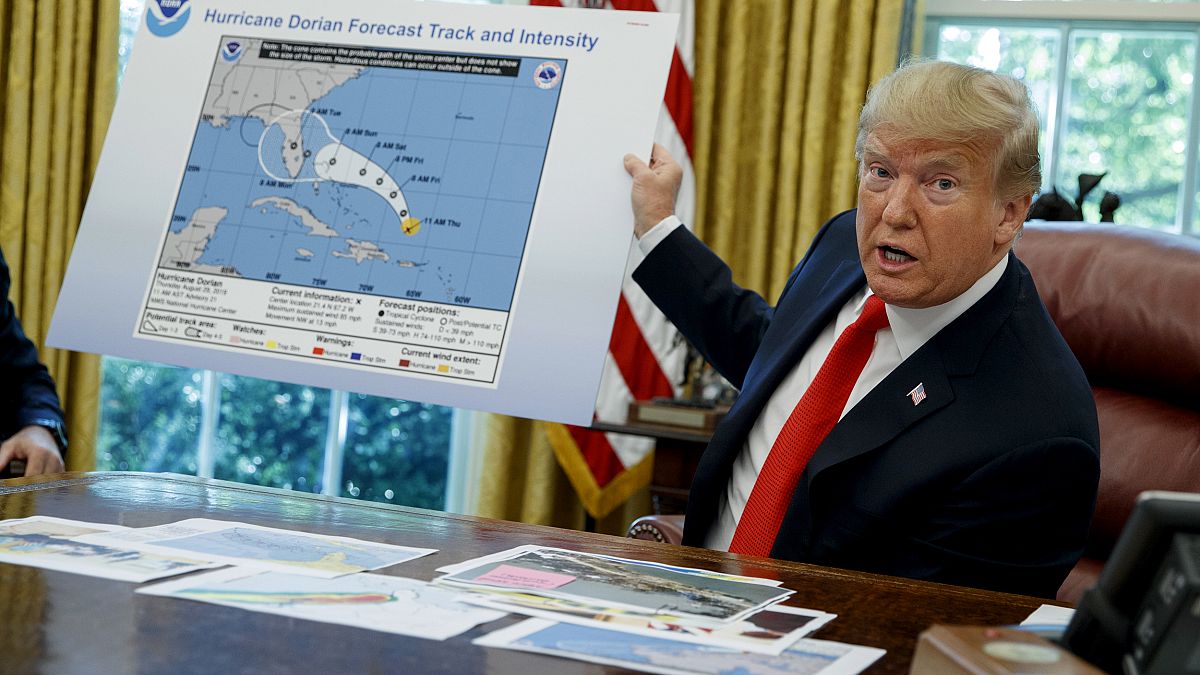"What's next? Climate science is a hoax?" the NOAA's acting chief scientist wrote. "Flabbergasted to leave our forecasters hanging in the political wind."
Officials at the National Oceanic and Atmospheric Administration were "sick" and "flabbergasted" about how the agency handled the fallout of President Donald Trump's comments about Hurricane Dorian last year, newly released internal emails show.
The emails, released late Friday night in response to Freedom of Information Act requests from multiple media outlets, showed that the top two officials at the agency did not approve of a Sept. 6 statement which criticized the Birmingham office of the National Weather Service for contradicting Trump's inaccurate claim that Dorian was threatening Alabama.
"Please accept [acting NOAA chief Neil Jacobs'] reply as a sincere acknowledgment of a press release we did not approve or support," Ret. Rear Adm. Tim Gallaudet, the second-highest ranking official in the agency, wrote in an email to Gary Shigenaka, an NOAA marine biologist, on Sept. 8. "You know from my multiple messages to you and your colleagues that we respect and stand behind your service and scientific integrity."
Jacobs wrote to Shigenaka: "This whole thing is being blown way out of proportion and politicized. The so-called tweet said absolutely no chance of impacts and NHC guidance was calling for 5-30%. The forecast office did the right thing to calm the nerves of citizens. I love NOAA. I am so proud of everything you all do."
"You have no idea how hard I'm fighting to keep politics out of science," Jacobs wrote. "We are an objective science agency, and we won't and never will base any decisions on anything other than science."
At the time the emails were authored, Trump made and defended claims that the hurricane was likely to hit Alabama on Sept. 1 "(much) harder than anticipated," contradicting forecasts that day, which showed Alabama was no longer in the storm's projected path.
Trump's insistence sparked more than a week-long fight, well after the storm devastated the Bahamas and caused major damage in the Carolinas. At the time of Trump's tweet, the southeastern corner of Alabama stood at a minuscule risk of receiving tropical storm force winds in excess of 39 miles per hour. But the state was not in the National Hurricane Center's projected path for the storm or its "cone of uncertainty," which by that point showed the hurricane moving up the East Coast.
The National Weather Service's Birmingham staff tweeted after Trump's initial claim that "Alabama will NOT see any impacts from #Dorian" because the storm "will remain too far east." A NWS spokeswoman told staff that the scientists who sent the tweet were unaware of the Trump tweet.
Days later, Trump displayed an apparently doctored map in the Oval Office that showed Alabama — circled in black marker that looked to be from a Sharpie — to be within Dorian's path.
In the recently released emails, Corey Pieper, a top social media staffer at the NWS, wrote that the map had been "doctored." When pressed by another official on whether he was sure of it, Pieper said: "Yes, that was doctored."
One day after Trump shared his altered map, the NOAA released an unsigned statement defending his claims about the hurricane's path, adding that NWS Birmingham staff was wrong to speak "in absolute terms" when they tweeted that Alabama was not at risk. That statement sparked backlash from forecasters.
The Commerce Department Inspector General and the House Science Committee are investigating the circumstances around that statement and any political pressure put on the agency.
"HELP!!!" Dennis Feltgen, an NOAA public affairs official, wrote to colleagues in response to a surge of media requests. Soon after the statement was published, the then-deputy chief of staff and communications director Julie Roberts wrote: "I pray this thing dies off by morning."
"What's next? Climate science is a hoax?" NOAA acting chief scientist Craig McLean wrote to agency leaders. "Flabbergasted to leave our forecasters hanging in the political wind."
McLean later wrote in an email to staff that he would probe why the agency backed Trump's claims over its own forecasters.
Soon after the statement went live, NOAA officials said they were bombarded with "ugly" reactions.
"I am sick to my stomach," Feltgen wrote.












